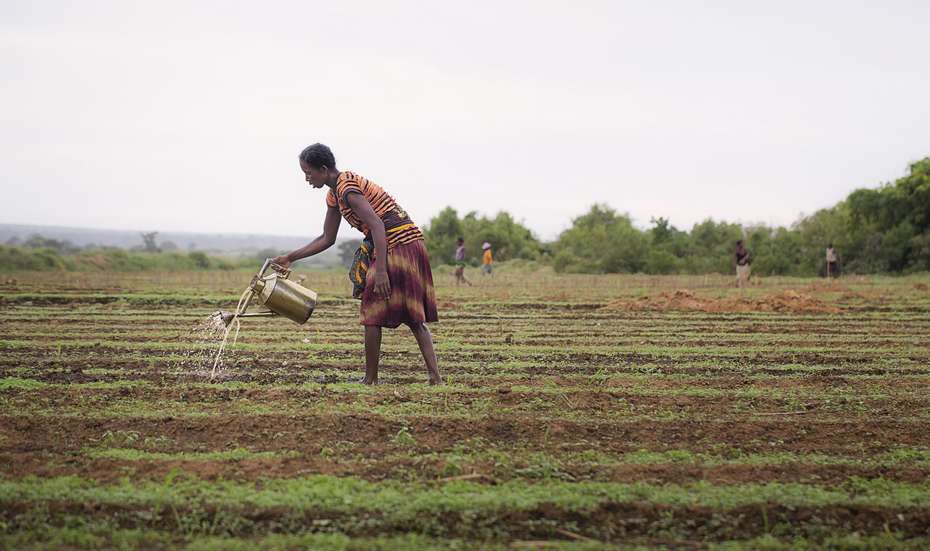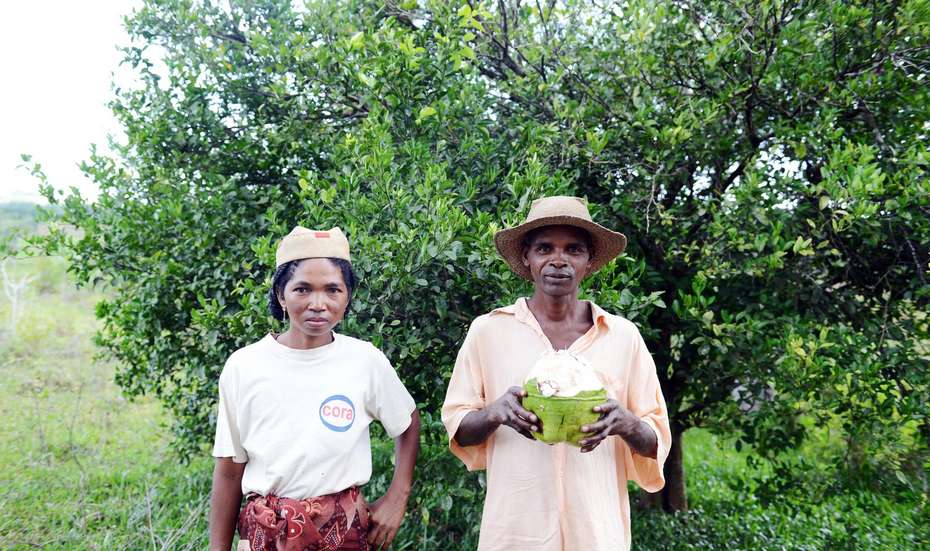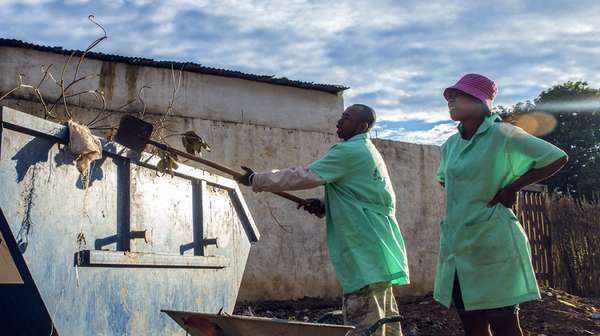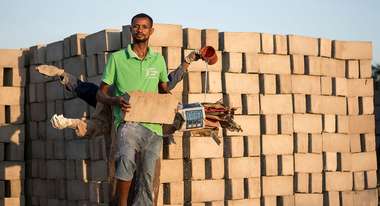Welthungerhilfe's work in Madagascar
Fighting Hunger in Madagascar
Welthungerhilfe works with the local population in Madagascar's rural communities to address their needs concerning nutrition, hygiene and a secure livelihood.

Madagascar is a country of contrasts. As a tropical paradise with long, sandy beaches and remarkable biodiversity, the world’s fourth-largest island is becoming more and more popular with tourists. Some darker aspects, however, are often overlooked: Madagascar has one of the world’s highest rates of chronic undernutrition. Three out of every four residents make their living as small farmers, but they barely harvest enough to cover their own needs. Only half of the 23.5 million inhabitants have access to clean water.
Water – No Smooth Sailing
One such city is Tuléar, in southwestern Madagascar. Approximately 35% of its residents are originally from elsewhere, and its population has more than doubled in the last 10 years. The city’s problems are increasing in tandem with its uncontrolled growth: Mountains of garbage and street-side sewage pose grave health risks, with pollutants seeping into the groundwater and contaminating waterways, flies transmitting germs to food in the marketplace and infectious diseases thriving.

The rural areas surrounding the city are not much better off: In some districts, only 6% of the population has access to clean drinking water. This is due to both extreme dryness in the region and a lack of wells in the villages. Animals also drink from the few existing watering holes. This leads both to contamination and to conflicts over the scarce water supply.
Better Income – Better Nutrition
Since almost half of the households in Tuléar live below the poverty line, families were thus far not able to afford an adequate, healthy diet. They are therefore receiving special consideration in connection with waste removal activities: Especially single mothers and unemployed youths can earn a living from collecting and recycling waste materials. Training and equipment for waste collection are being provided in support as well.

How Welthungerhilfe Supports People in Madagascar
The project that Welthungerhilfe is conducting in conjunction with the local population addresses the most urgent problems facing Tuléar and five rural communities:
- In collaboration with municipal authorities, a waste removal and recycling system is being established in the city, and a waste storage and separation centre is being built. This helps to protect ground and surface water and creates jobs.
- New water sources help provide urban and rural residents with water of both sufficient quantity and good quality, both of which factors have a significant effect on health. Drinking contaminated water, for example, leads to incidences of diarrhoea. These spread quickly, since most people do not wash their hands with soap.
- Hygiene education measures therefore form an important part of the project measures. Families learn how to transport and store drinking water so as to prevent germ contamination, why water needs to be boiled and when hands need to be washed.
- In order to improve the livelihood of smallholders and to counter urbanisation, farm families are advised on vegetable cultivation and supplied with high-quality seeds.
- Planting fast-growing fruit trees, grown in tree nurseries, expands nutritional variety and also serves to support the reforestation of areas threatened by erosion and to protect the water table.







